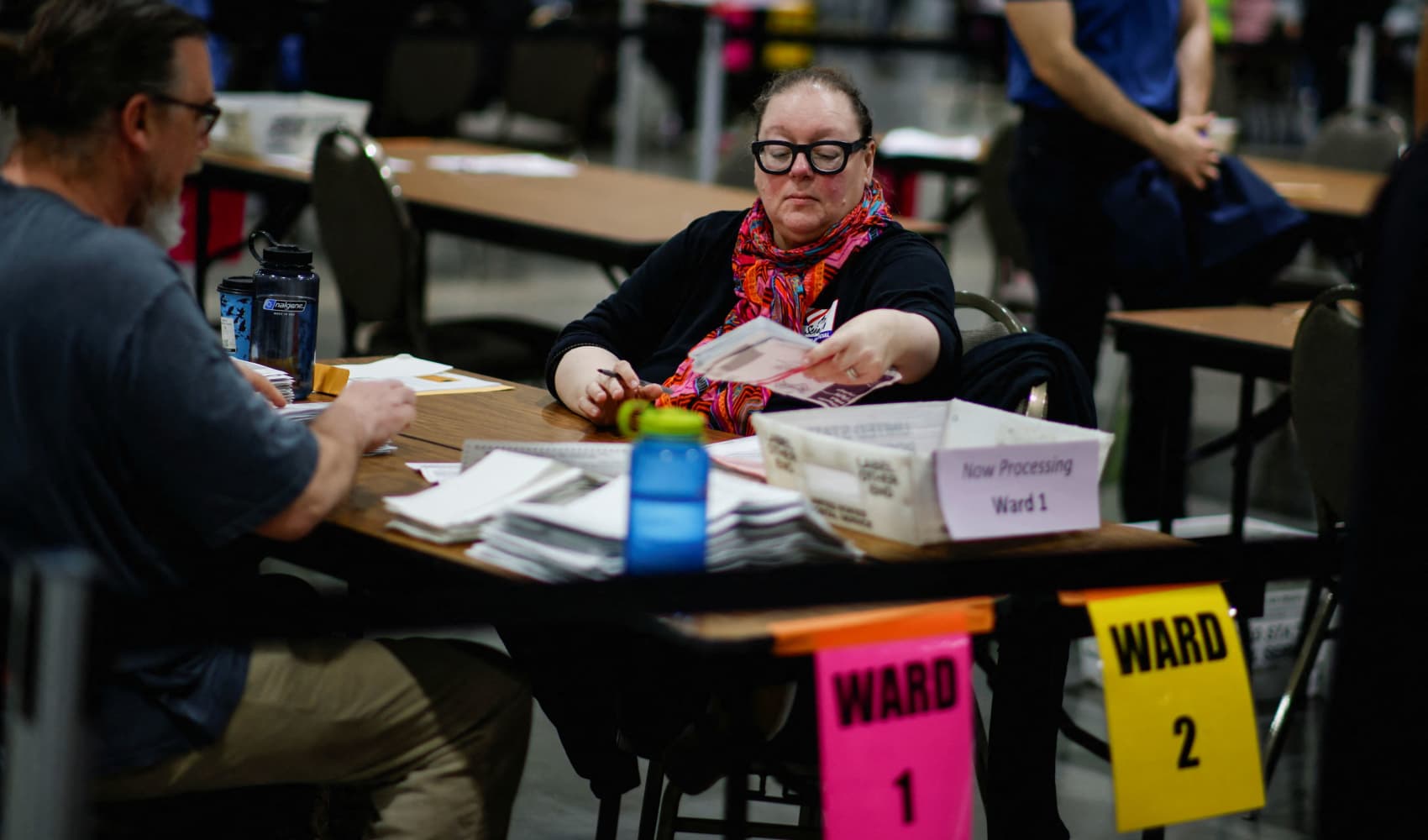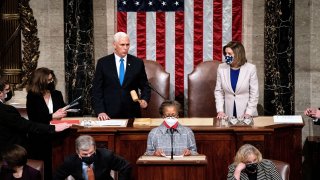
- Congress' vote to confirm Joe Biden's victory came in the wee hours of Thursday, a day after a pro-Trump mob invaded the U.S. Capitol.
- Minutes later, President Trump said he was willing to allow an “orderly transition” of power.
- The affirmation came after the House and Senate overwhelmingly rejected efforts by some Republicans to object to the acceptance of Electoral College wins for Biden in Arizona and Pennsylvania.
Congress confirmed the election of Joe Biden as president early Thursday, a day after a mob invaded the U.S. Capitol in a chaotic effort to avoid having President Donald Trump be formally recognized as the loser in the race.
The affirmation came after the House and Senate overwhelmingly rejected efforts by some Republicans to object to the acceptance of Electoral College wins for Biden in Arizona and Pennsylvania.
Biden and Vice President-elect Kamala Harris hit 306 votes in the Electoral College, 36 more than needed to secure a White House victory. Trump received 232 votes.
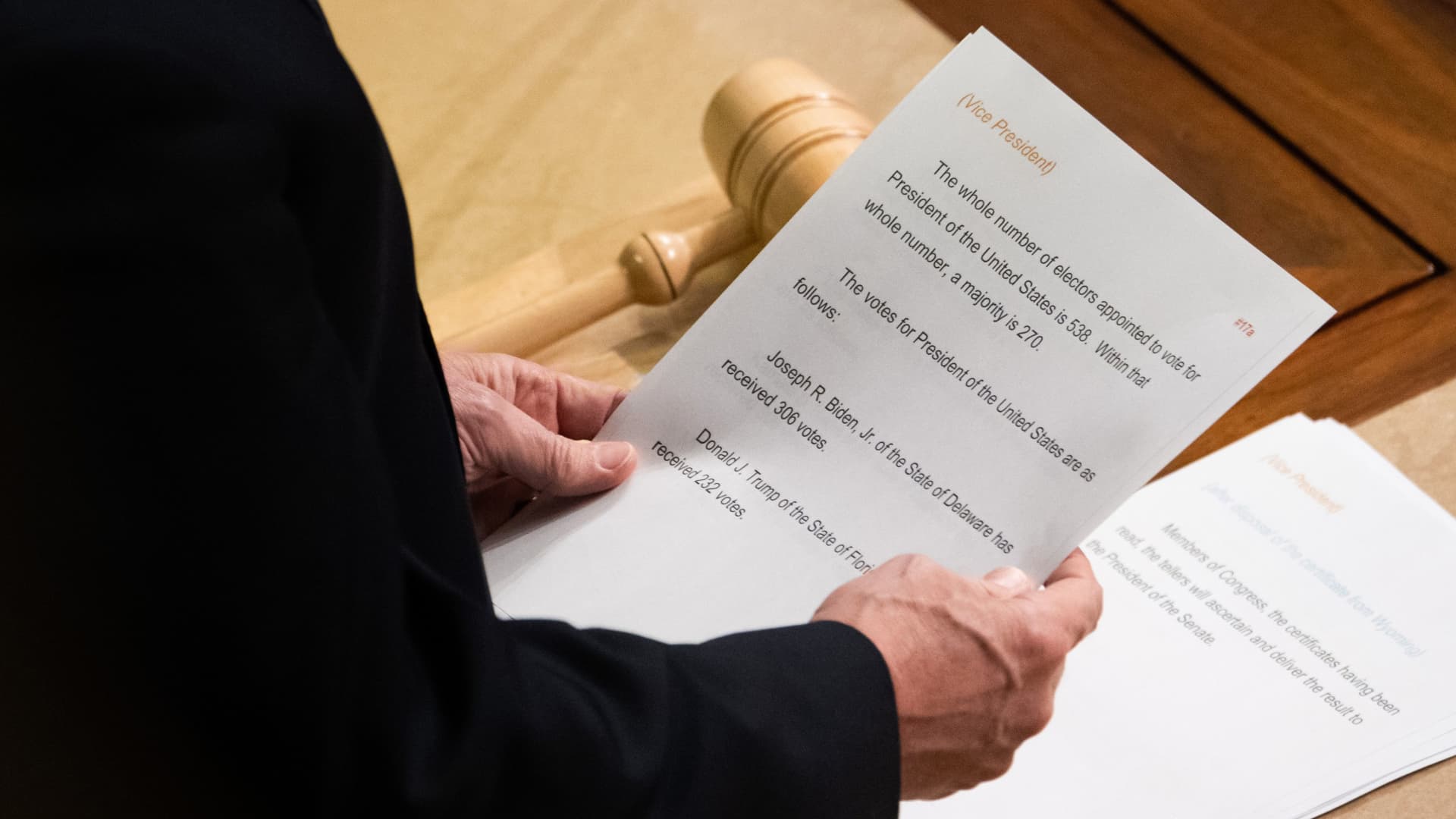
Vice President Mike Pence read off the tallies at around 3:40 a.m. ET after lawmakers applauded the result. He gaveled the session closed at about 3:44 a.m.
Money Report
Minutes later, Trump said in a tweet through a surrogate that he was willing to allow an “orderly transition on January 20th.” But he added that "it's only the beginning of our fight." The tweet was sent by deputy chief of staff for communications Dan Scavino. Trump's Twitter account was temporarily frozen because of his continued false claims about the results of the election.
The certification of an Electoral College win is normally a formality by Congress, enshrined in the Constitution.
But Trump's refusal for the past two months to accept that he lost while claiming without valid evidence that he lost due to widespread ballot fraud complicated that process.
Scores of his Republican allies in Congress said they would object to the acceptance of electors from states that gave Biden his margin of victory.
Trump pressured Pence to void Biden's win unilaterally by refusing to approve some ballots for the Democrat.
But Pence, in a letter released Wednesday, refused to do so, saying he did not have such power as the presiding officer in the joint session of Congress to toss out ballots.
Congress began the process of counting Electoral College votes Wednesday afternoon.
But that proceeding was interrupted for about six hours by a mob that stormed the Capitol and breached its buildings in anger over Trump's loss in the election, and their belief that he was the victim of ballot fraud.
The count resumed at about 8 p.m. Wednesday, after a woman who was among the invaders was shot and killed by Capitol Police during the riot, and three other people died from medical emergencies.
The leaders of both the Republican and Democratic caucuses in the Senate vowed when they resumed proceedings that Congress would confirm Biden's election "tonight."
During the night, both chambers of Congress met separately to debate and then vote on objections by Republicans to the Biden electors from Arizona, and then from Pennsylvania.
Seven GOP senators voted to sustain the objections to the Pennsylvania electors: Ted Cruz of Texas, Josh Hawley of Missouri, Tommy Tuberville of Alabama, Cindy Hyde-Smith of Mississippi, Roger Marshall of Kansas, Cynthia Lummis of Wyoming and Rick Scott of Florida.
Six senators voted to sustain the challenge to the Arizona electors: Cruz, Hawley, Tuberville, Hyde-Smith, Marshall and John Kennedy, R-La.
More than 90 senators in both cases voted against the objections.
More than 100 Republican House members voted for the objections to both states' electors, but those voters were easily defeated by the more than 280 votes against the measures.
Before the riot, there were concerns it could take many hours, or even days, to confirm Biden won the Electoral College with 306 votes to Trump's 232 because of expected objections to individual states' electors by some Republican senators and House members.
Those objections were based on claims by Trump and others that he was swindled out of winning a second term because of widespread ballot fraud in a handful of battleground states, a claim for which there is no credible evidence.
There was no expectation, however, that Biden ever would be denied his ultimate victory, because it would take a majority in both chambers of Congress to reject a state's electors.
Democrats control the House, guaranteeing that they would defeat any challenge in that chamber.
In the Senate, the effort was doomed because while Republicans still held a slim majority there, many GOP senators were opposed to overturning the election results from any state.
Sen. Kelly Loeffler, R-Ga., who lost a special election Tuesday night, said on the Senate floor before the vote that she would not object to counting of votes for Biden, despite having said earlier this week that she would do so.
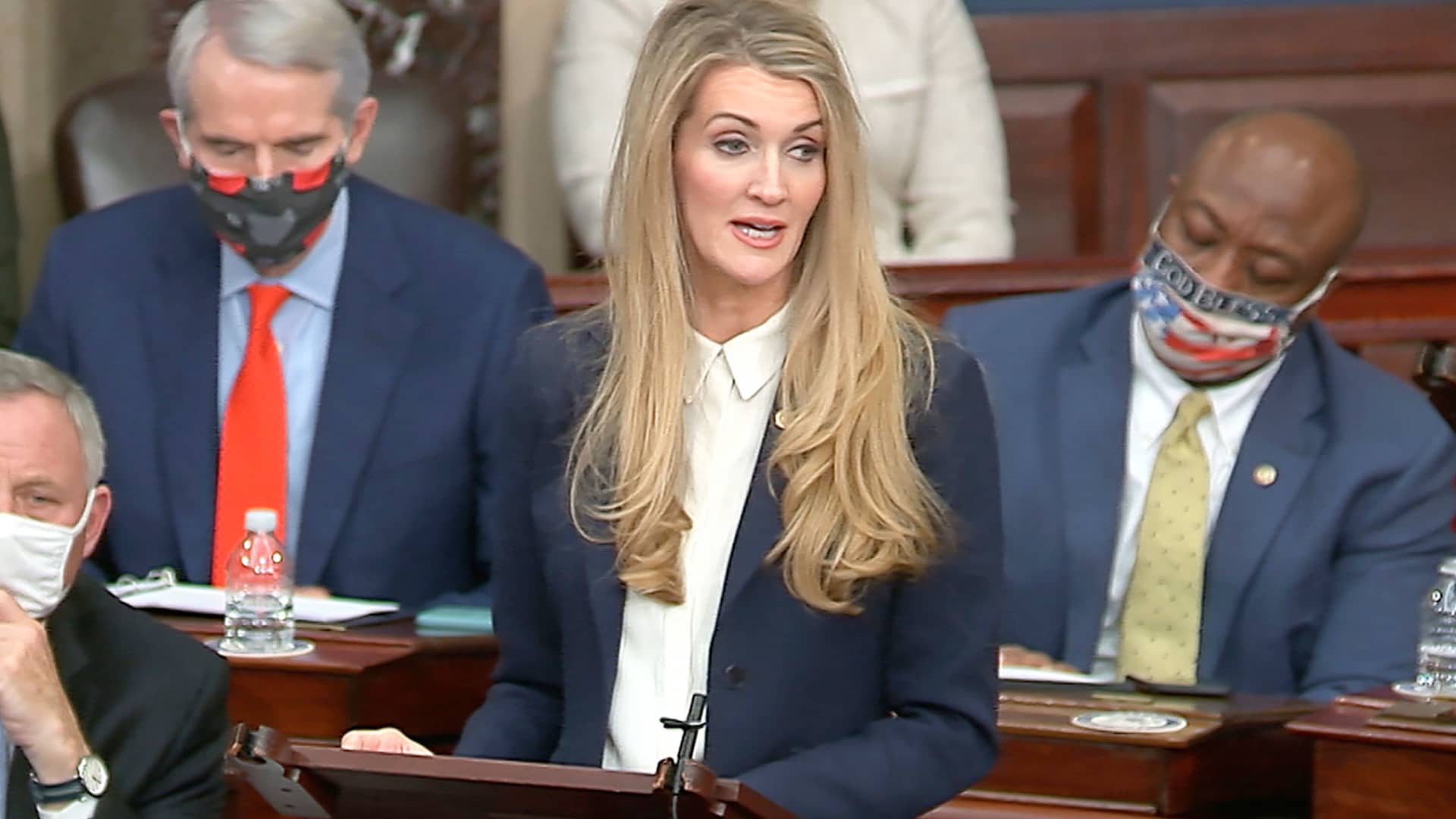
"The events that have transpired today have forced me to reconsider, and I cannot now, in good conscience, object," Loeffler said.
After the challenge to Arizona's electors failed in the House, senators went to the House to resume the process of Pence presiding over the opening of ballots from individual states, and asking if there were any objections to the results.
Only one House member and one senator are needed to challenge a state's results, triggering up to two hours of debates in the chambers separately.
House members' objections to Biden electors from Georgia, Michigan, Nevada and Wisconsin — all of which were crucial to his victory — each failed to get at least one senator needed to join in the objection to force a debate and vote on the challenge.
House Speaker Nancy Pelosi, D-Calif., in a letter to colleagues, said the decision to quickly resume counting votes on the heels of the riot was made in consultation with political leaders including Pence.

"Our purpose will be accomplished," Pelosi said as she reconvened the House's session, about an hour after the Senate resumed its own proceedings.
"Today was a dark day in the history of the United States Capitol," Pence said as he opened the session in the Senate.
"We condemn the violence that took place here in the strongest possible terms," said the vice president, who previously was a congressman from Indiana.
"The violence was quelled, the Capitol is secured, and the people's work continues," Pence said.
"To those who wreaked havoc in our Capitol today, you did not win. Violence never wins. Freedom wins," he said.
"Let's get back to work."
Senate Majority Leader Mitch McConnell, R-Ky., said, "The United States Senate will not be intimidated."
"We are back at our posts, we will discharge our duty," McConnell said. "We assembled this afternoon to count our citizens' votes, and to formalize their choice of president."
"We will certify the winner of the 2020 presidential election," he concluded.
Minority Leader Chuck Schumer, D-N.Y., blasted Trump, whom he called "undoubtedly our worst president," and whom he said "bears a great deal of the blame" for the riot.
"This mob was in good part President Trump's doing," said Schumer. "His responsibility, his everlasting shame."
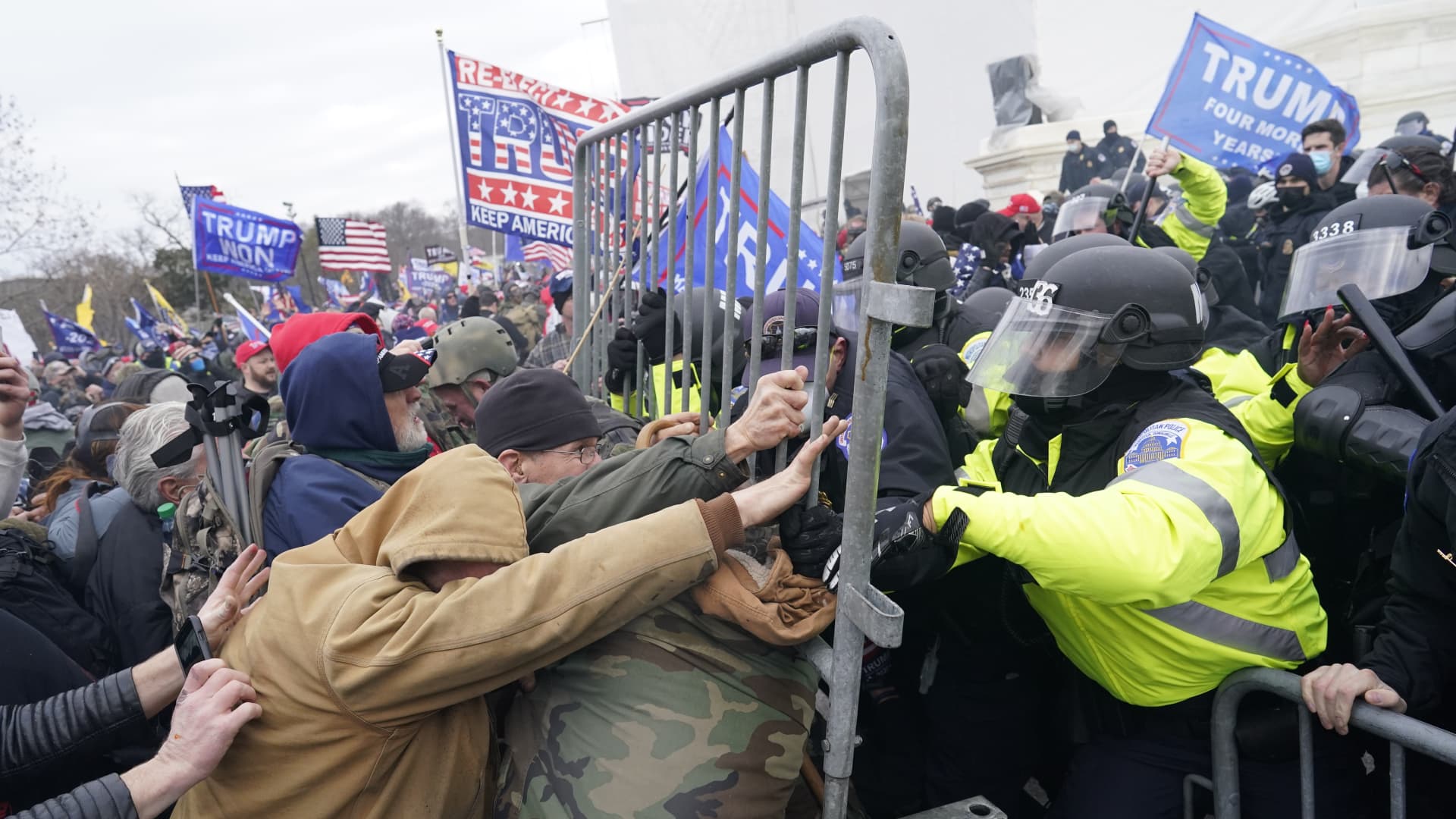
Schumer likened the invasion of the Capitol complex by a horde of people to the Japanese attack on Pearl Harbor on Dec. 7, 1941, saying Jan. 6, 2021, will be another "day of infamy" in American history.
"This temple of democracy was desecrated," he said. "This will be a stain on our country, not so easily washed away."
"We will begin the hard work of repairing the country tonight."
The pro-Trump mob triggered lockdowns and evacuations at the Capitol, forcing lawmakers out of the House and Senate chambers shortly after the proceedings began at 1 p.m.
Rioters were recorded walking the halls of the government building, entering politicians' offices and occupying the Senate chamber.



